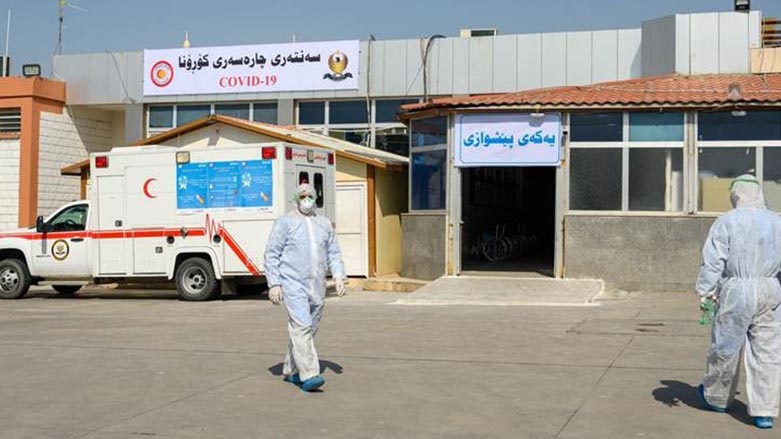COVID-19: Kurdistan Region reports a new record of over 660 cases

ERBIL (Kurdistan 24) – On Friday, the Kurdistan Region’s Ministry of Health announced a record-breaking number of infections in the past 24 hours: over 660. The new infections raise the total count to 20,000, since the virus first appeared in the region.
The ministry said in a statement that health workers had conducted 3, 299 tests over the past 24 hours, 667 of which returned positive. Of the new cases, 411 were in Erbil province, 83 in Duhok province, while Sulaimani recorded 61 cases. Halabja province had only 13 cases.
The ministry also announced 13 deaths during the same period, raising the total number of fatalities to 712.
According to official data, the total number of infections since the start of the pandemic has reached 20,000, of which 11, 028 patients have recovered, while 241,448 tests have been conducted.
Recent surges in COVID-19 in Kurdistan Region
The Kurdistan Region has recently seen a surge in coronavirus infections across its provinces, particularly in the capital city Erbil.
Previously, Sulaimani province, which neighbors Iran, the epicenter of the pandemic in the Middle East, had the highest daily number of infections. Recently, however, the province has seen a decline in its infection rate.
The Kurdistan Regional Government (KRG), as well as local authorities, have repeatedly called on the public to adhere to the guidelines promulgated by health officials.
In a press conference on Tuesday afternoon, the KRG’s Health Minister Saman Barzinji warned, “If health measures are not observed,” more deaths will follow in the future.
The minister’s remarks came, as he announced that the KRG would cover the costs of treatment for those patients who are admitted to private hospitals, in the event that public hospitals cannot accommodate them.
The number of coronavirus cases in the Kurdistan Region continues to surge, following an initial increase in late May, as the government relaxed lockdown measures—amid growing financial difficulties—and allowed for the resumption of trade with Iran.
The region’s health minister also said it would work to increase daily testing in order to better detect coronavirus cases in the region.
Extensive testing is an important measure to find those people who have been infected, so they can be isolated and treated and those people with whom they have been in contact can be informed of the problem, so they, too, can isolate themselves and avoid transmitting the virus to others.
Editing by Laurie Mylroie
